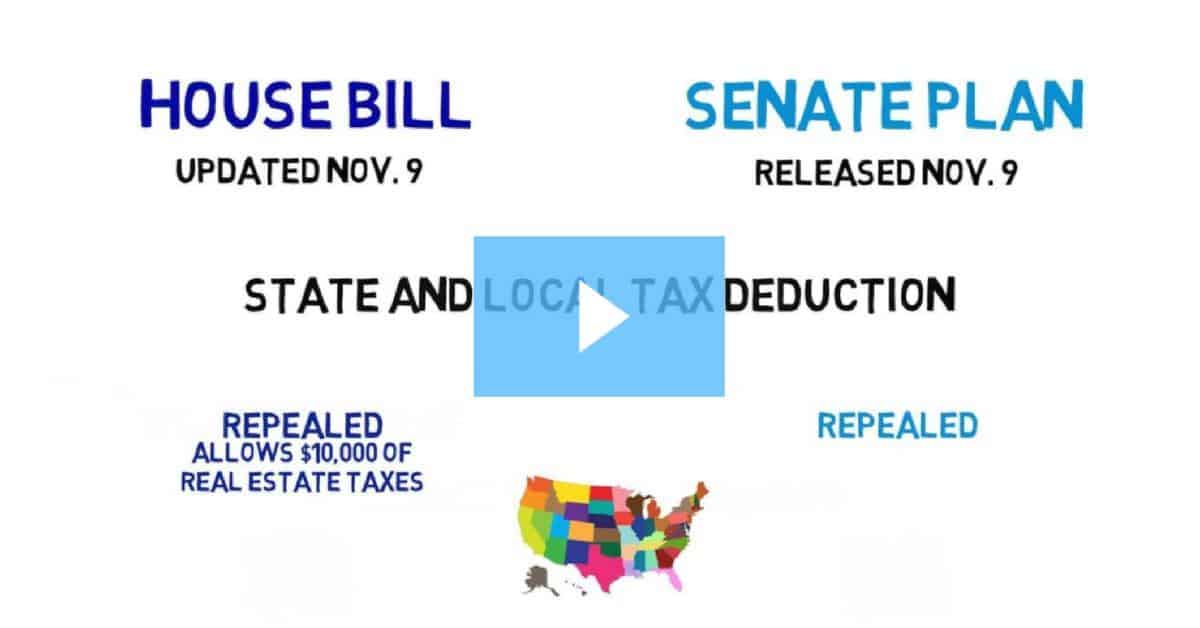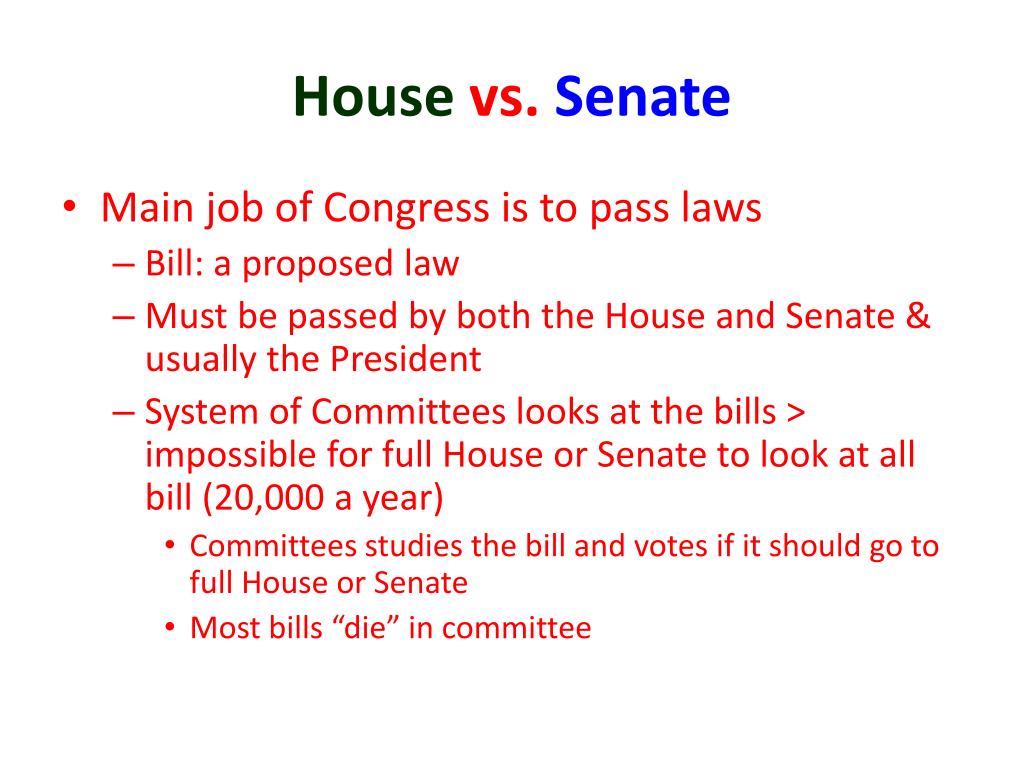Table Of Content
- Senators
- The powers of the House and Senate compared
- What's The Difference Between The Senate And The House Of Representatives?
- What's a Select Committee?
- Rwanda raids to begin on Monday with Government set to detain dozens ahead of deportation flights
- Resources on House of Representatives roles and responsibilities
- How a bill becomes a law

They are on average older than their counterparts in the House, and have an older minimum age to be selected, according to the Constitution. If a Washington politician has ambitions for higher things, then the Senate will provide a better springboard. Dennis Hastert, who was Speaker from 1999 to 2007, operated very much behind the scenes, while the House majority leader Tom DeLay .(the Hammer') drove the Republican agenda through the House.
Senators
If released by the committee, the bill is put on a calendar to be voted on, debated or amended. If the bill passes by simple majority (218 of 435), the bill moves to the Senate. In the Senate, the bill is assigned to another committee and, if released, debated and voted on.
The powers of the House and Senate compared
This stipulation has been used by representatives and senators to avoid subpoenas and other judicial procedures. A senator can waive the privilege at any time, but a member of the House has to submit his or her petition to a general vote. Both the Senate and the House of Representatives are part of the U.S Congress, the legislative branch of the government that has the role of making laws – which will be enacted by the executive branch of the government, headed by the U.S. The legislative branch is divided into the House of Representatives and the Senate.
What's The Difference Between The Senate And The House Of Representatives?
Official websites use .govA .gov website belongs to an official government organization in the United States. Senate is one of the most popular houses in the entire world, and various case studies are taught in universities on how the management of the Senate takes place. Use the Find Your Representative box in the banner of this site to identify your representative, then use the contact form to share your thoughts. The House will sometimes form a special or select committee for a short time period and specific purpose, frequently an investigation. Get answers to frequently asked questions about committees from the Clerk of the House.
Are the chambers equal in power?

One of the major functions of the House is its power to accuse and charge the representative or the members who have indulged in any corruption. There is a total of 435 seats in the House of Representatives, which consists of one leader from every district of the United States. There are a large number of similarities and differences between both entities. Much like the House power to select the president, this power has rarely been used.
What's a Select Committee?
When receiving a bill from Congress, the President has several options. If the President agrees substantially with the bill, he or she may sign it into law, and the bill is then printed in the Statutes at Large. If the President believes the law to be bad policy, he or she may veto it and send it back to Congress.
Rwanda raids to begin on Monday with Government set to detain dozens ahead of deportation flights
(Some committees exist in both chambers, such as Budget, Armed Services, and Veterans Affairs.) Special committees are temporary, formed to investigate, analyze, and/or evaluate specific issues. Conference committees are formed when legislation is approved in both the House and Senate; they finalize the language in legislation. Joint committees feature members of the House and Senate, with leadership of each committee alternating between members of each chamber. For example, Congress has the power to pass a federal budget, which outlines the spending and revenue plans of the federal government. This power is critical to the functioning of the government and enables Congress to make decisions about the allocation of resources and funding for various programs and initiatives.
It will now be up to House lawmakers to either accept or deny the Senate's proposal. Medicaid conferees have until Monday to file a conference report detailing a compromise for the Senate and House to vote on. The plan Senate lawmakers sent back to the House on Friday was essentially the same as the House's compromise plan, but it takes out a contingency plan to expand Medicaid if CMS disapproves of the work requirement. The new plan would also designate the attorney general's office to appeal the decision by CMS if it disapproves.
The House is one of Congress’s two chambers (the other is the U.S. Senate), and part of the federal government’s legislative branch. The number of voting representatives in the House is fixed by law at no more than 435, proportionally representing the population of the 50 states. Debating legislation has stricter rules in the House than in the Senate, applicable at both the committee and whole-body levels. In the House, debate time is restricted and topics are set beforehand, with discussions limited to the agenda. Once the floor is ceded to a senator, he or she can speak for as long as the senator chooses, on any topic; no other business can be transacted while the person speaks.
The Senate is designed to represent the states equally, with each state being allotted two senators regardless of population. This was established in order to ensure that smaller states had equal representation to larger states in the legislative process. The Senate was created to serve as a check on the power of the House of Representatives, which is designed to represent the population.
Also referred to as a congressman or congresswoman, each representative is elected to a two-year term serving the people of a specific congressional district. Among other duties, representatives introduce bills and resolutions, offer amendments and serve on committees. The number of representatives with full voting rights is 435, a number set by Public Law 62-5 on August 8, 1911, and in effect since 1913. The number of representatives per state is proportionate to population. Per the Connecticut Compromise at the Constitutional Convention in Philadelphia in 1787, the United States adopted the bicameral system of the English Parliament (i.e., House of Lords and House of Commons).
Oversight of the executive branch is an important Congressional check on the President’s power and a balance against his or her discretion in implementing laws and making regulations. Article I of the Constitution enumerates the powers of Congress and the specific areas in which it may legislate. Congress is also empowered to enact laws deemed “necessary and proper” for the execution of the powers given to any part of the government under the Constitution.
The power to declare war, levy taxes, and regulate commerce are among the congressional powers enumerated in Article I, Section 8 of the Constitution. The taxing and spending clause and the commerce clause have been used to broaden congressional authority over federal tax and economic policy. Marshall’s decision expanded the scope of the legislative powers enumerated in the Constitution by including the power to declare war, levy taxes, and regulate commerce.

Curious about who else has been Speaker of the House or Majority Leader? Click here for a three part media-based lesson about exploring the differences between the House and the Senate. The Vice President of the United States serves as President of the Senate and may cast the decisive vote in the event of a tie in the Senate. Both the House and Senate have standing, special, conference, and joint committees. Republicans currently control the Senate (54 to 44 Democrats) and the House (246 to 188).
Congress Leaves for Summer Break With Long To-Do List When They Return - SpacePolicyOnline.com
Congress Leaves for Summer Break With Long To-Do List When They Return.
Posted: Sat, 29 Jul 2023 07:00:00 GMT [source]
There are 17 Senate committees, with 70 subcommittees, and 23 House committees, with 104 subcommittees. The committees are not set in stone, but change in number and form with each new Congress as required for the efficient consideration of legislation. Each committee oversees a specific policy area, and the subcommittees take on more specialized policy areas. For example, the House Committee on Ways and Means includes subcommittees on Social Security and Trade. The House has several powers assigned exclusively to it, including the power to initiate revenue bills, impeach federal officials, and elect the President in the case of an Electoral College tie.
Mississippi Senate Medicaid conference committee members have proposed a similar version of a House proposal that would expand Medicaid in Mississippi for the state's working poor making up to 138% of the federal poverty line. Senators are re-elected every six years - meaning around a third of them are elected at each midterm and election. The U.S. Senate has an incredible power in all what concerns the country’s foreign policy. President Woodrow Wilson actively participated in the drafting of the Treaty of Versaille and became a strong supporter of the League of Nations. Senate refused to ratify the treaty and, therefore, the United States never joined the League of Nations4.

No comments:
Post a Comment